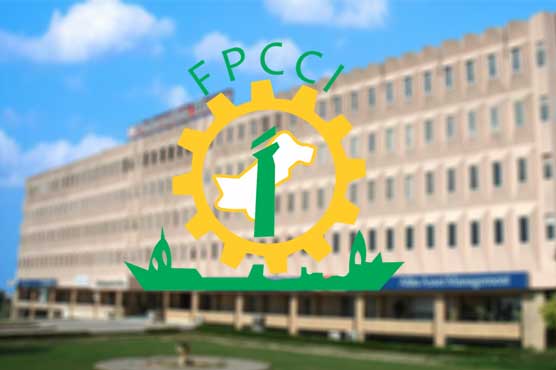Pact with IPPs good step but forensic audit must to save industry: FPCCI

The FPCCI President called for bringing power and gas tariffs for domestic as well as export sectors
ISLAMABAD (Dunya News) – As the production cost continues to go high and Pakistan has become uncompetitive in global market the Federation of Pakistan Chambers of Commerce & Industry (FPCCI) has termed the government’s recent agreement with the Independent Power producers a right step in the right direction to lower cost of electricity generation, also calling for forensic audit of the Independent Power Plants (IPPs) to save the dying local industry.
FPCCI President Mian Anjum Nisar called for bringing power and gas tariffs for domestic as well as export sectors compatible with tariffs being applied in regional and neighboring countries as the industry is presently paying around Rs24 per unit of electricity as compared with regional tariff of about 7.5 cents per unit, in regional countries. He added that the low energy tariff is the only way to ensure more investment in the country. “FPCCI demands forensic audit of IPPs matter, besides impeachment of those, who are responsible, without any discrimination in the larger national interest and for the sake of country,” he added.
He applauded the government as well as the IPPs, to sign a pact in the larger interest under the 1994 and 2002 power policy, agreeing voluntarily concessions, leading to reduce cost of power generation and cutting circular debt, but still there is room of slashing power generation cost further keeping in view of the global trend of power producers, he added.
“It is a right move towards cut in production cost and ease of doing business but it is also a fact that several sensitive issues have not been touched yet and benefit was given to the power producers against the industry and domestic consumers of the country, which is unjust,” Nisar said.
Along with the new pact with the IPPs, he stressed the need for more solid and concrete steps with a view to provide electricity at a competitive price to the end consumers, SMEs and agriculture sector. The FPCCI president proposed that the next target should be reforms in Distribution Companies (DISCOs) to further reduce cost of production, which is very high owing to ever-increasing power and gas tariffs, expansive fuel and continued weakening of rupee along with rising import duties on industrial raw material. He observed that the government will have to make visible reduction in taxes to help revive the businesses in post-corona economic strategy.
He said that the huge rise in energy tariffs is due to excessive capacity payment to IPPs in dollars, leading to further addition in public debt of the government, which ultimately passed on to the end consumers through NEPRA in the form of hike in fuel surcharges.
Nisar said that the major reason of growing circular debt is the sovereign guarantees of rate of return to IPPs in terms of dollars not rupees while continued depreciation of local currency against dollar in the past also amounted to losses in trillions. He said the inquiry report on the power sector stirred fierce debate on the energy crisis of Pakistan and its identified link to the IPPs.
According to reports, the cabinet had approved to public the findings of the PM enquiry committee report, forensic audit of the IPPs and establishment of the commission to probe the matter. However nothing has materialized in this regard so far, as a powerful lobby in the power sector is creating hurdles in the way of independent commission to probe the matter of additional profitability by the IPPs.
He said that the country can improve economic growth and job creation by overcoming inefficiencies in its power sector, which needs to focus on eliminating waste, promoting the shift towards cleaner energy and attracting private investments. Now, after an agreement has been finalized with the IPPs, the power sector reforms should be a top priority for a quick yield of economic gains.
Reforms that focus solely on rising energy prices had already led to an excessively high cost of electricity because of inefficiencies in the system, negatively impacting the industrial cost, he said, adding that an increase in tariffs alone could solve the fiscal problems in the short-term but on the long-term basis it cannot address the energy sector issues.
He said that the overall line losses of distribution companies in the public sector remained unchanged at 18.3 percent for the last several years (10-35 percent) while the current Unaccounted for Gas (UFG) losses of gas companies are causing a loss of more than Rs50 billion to the end consumers, burdening the industry with billions of rupees cost additionally.

